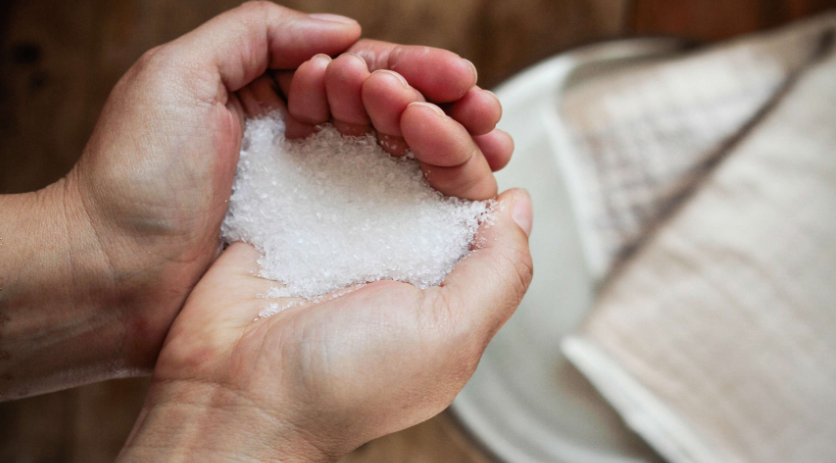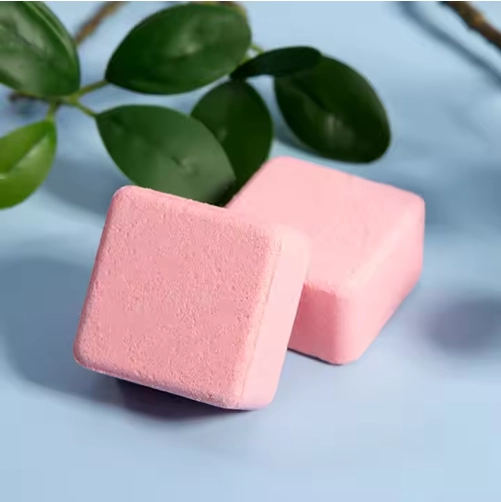What is Epsom salt?
Epsom salt is one of many naturally occurring mineral salts, a compound of magnesium and sulfate in rock-like formations. The name “Epsom salt” is a nod to the town of Epsom, located a stone’s throw away from London in England, where the salt was supposedly discovered about 400 years ago.
While it resembles table salt, it has a very bitter taste and isn’t really meant to be consumed. Most users dissolve it in a warm bath to soak in, hoping to relieve stress or sore muscles.
How Does Epsom Salt Differ From Salt?
Epsom salt, also known as magnesium sulfate, is a naturally occurring compound containing magnesium, sulfur, and oxygen. Its crystalline structure is similar to that of common table salt or sodium chloride.
Epsom salt is unlike table salt, as it tastes bitter and is not suitable for cooking. People use Epsom salt for its supposed healing and detoxifying properties.
How Does Epsom Salt Work?
The theory suggests that dissolving Epsom salt in water helps the skin absorb magnesium ions. These regulate numerous essential bodily functions, including muscle and nerve function, blood pressure, and inflammation.
However, there is not enough scientific evidence to support the claims that the body absorbs magnesium ions through the skin. Scientists need to perform more in-depth studies to confirm the effectiveness of using Epsom salt to treat various ailments.
Ways To Use Epsom Salt
There are a staggering number of ways you can use Epsom salt at home. We’ve gone into this in detail before, but let’s go over it once again.
Epsom salt is super handy in the garden. It contains magnesium and sulfate, both of which are essential for a plant’s growth, development and well-being. It can be used to deter pests, boost seed growth and nutrient absorption, improve the vibrancy of foliage and as a lawn fertiliser.
Epsom salt is also magnificent for health and well-being. Magnesium performs over 300 biochemical functions in the body, purifying, relieving, and treating ailments. The mineral helps to create a harmonious balance in the body. It can be used for everything from treating skin inflammations to relieving joint pain or even kicking a dreaded cold.
It can also be used for a range of beauty applications, from exfoliating dead skin and cleansing pores to reducing cellulite and rough patches on the skin and preventing premature ageing. All of this can be traced back to the pure mineral compound of sulphate and magnesium that continues Epsom salt.

Can I eat Epsom salt?
No, drinking Epsom salt without guidance from a doctor is unsafe. While it can be used as a laxative in water, consuming too much causes magnesium toxicity.
Symptoms of Epsom salt poisoning include nausea, vomiting, low blood pressure, confusion, and potentially cardiac arrest.
Always consult a healthcare professional before ingesting Epsom salt for any health-related purpose. They will determine if it is safe for you and provide the appropriate dosage.





